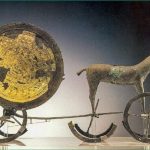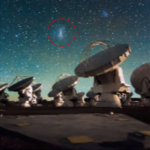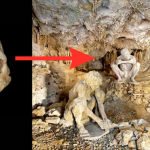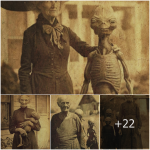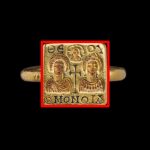The Anubis Shrine within Tutankhamun’s Tomb
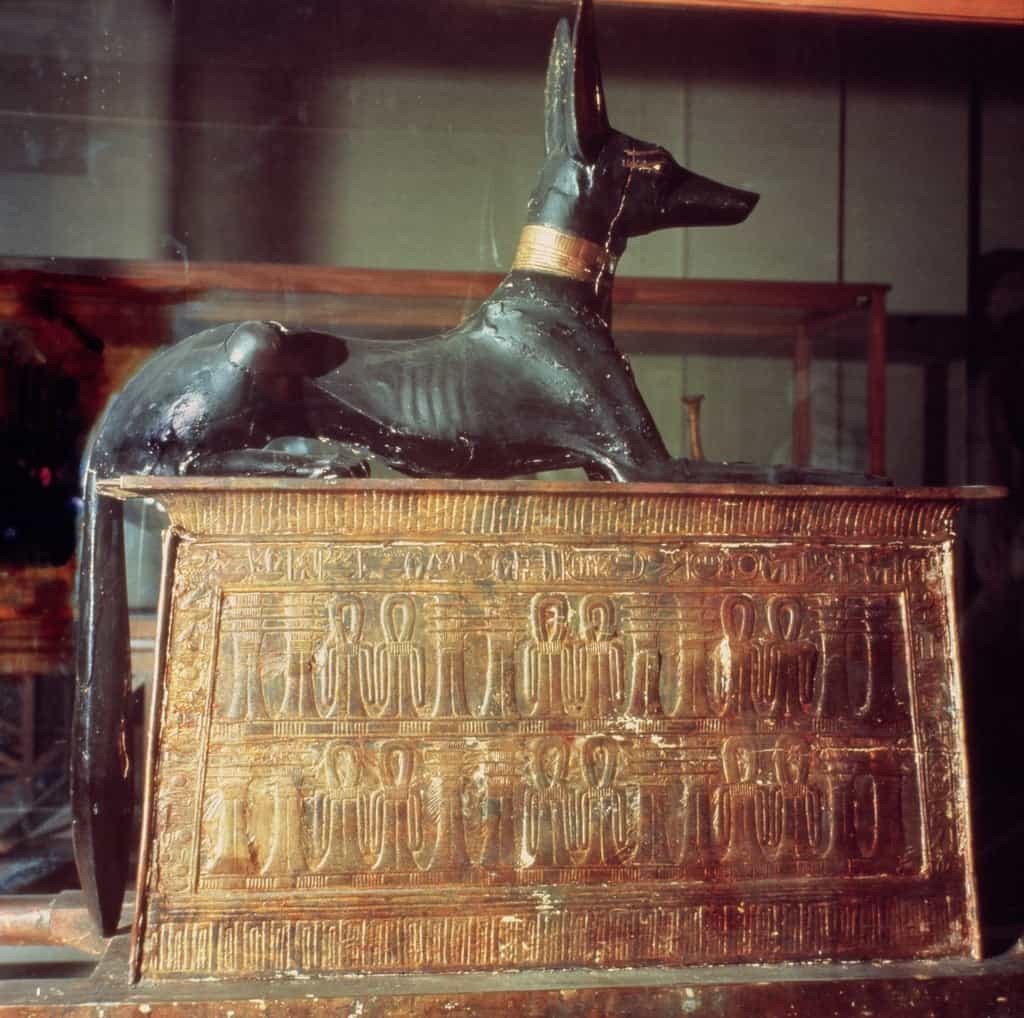
The Anubis Shrine comprises an impressive black-painted wooden statue of the renowned Egyptian god Anubis, which was discovered by Howard Carter guarding the entrance to Tutankhamun‘s Treasury. As one writer described it, the statue “served as an ancient Egyptian ‘no trespassing’ sign that promised eternal punishment to those who defied it.”

The Sanctuary of Anubis is one of the most significant funerary objects found in the tomb of the Egyptian pharaoh Tutankhamun.
How is it?
The Anubis statue is represented in animal form as a jackal and is affixed to the roof of the sanctuary. It was over one meter long and nestled protectively near the entrance to the treasure house.
This life-size statue is carved from wood covered in black resin and has golden ears, neck, and turban. Each side contains a central image, bordered by inscriptions on three sides. The symbols of the gods Isis and Osiris appear on some panels.

What does it represent?
Anubis is depicted as a jackal-headed male figure. The upper decoration displays the so-called Djed pillar, a symbol of resistance that is closely related to the god Osiris. The inscriptions run horizontally along the upper edge and vertically along the sides of all the faces of the sanctuary.
You can see how Anubis was originally wrapped in a shawl/shirt that actually had a cartouche from Tutankhamun’s father, the heretic king Akhenaten. Many of these treasures may have originally been made for Akhenaten and Nefertiti. The golden reliquary was hollow and contained other treasures associated with prosperity, fertility, and rebirth, such as blue amulets and baboon figurines.

Other meanings
The Anubis shrine was probably used in the king’s funeral procession and eventually placed in front of the canopic shrine in the hall. This orientation, as well as that of the Anubis statue and sanctuary to the west, the direction of the afterlife in ancient Egyptian belief, shows the role of the god Anubis as the guardian of the Theban necropolis.
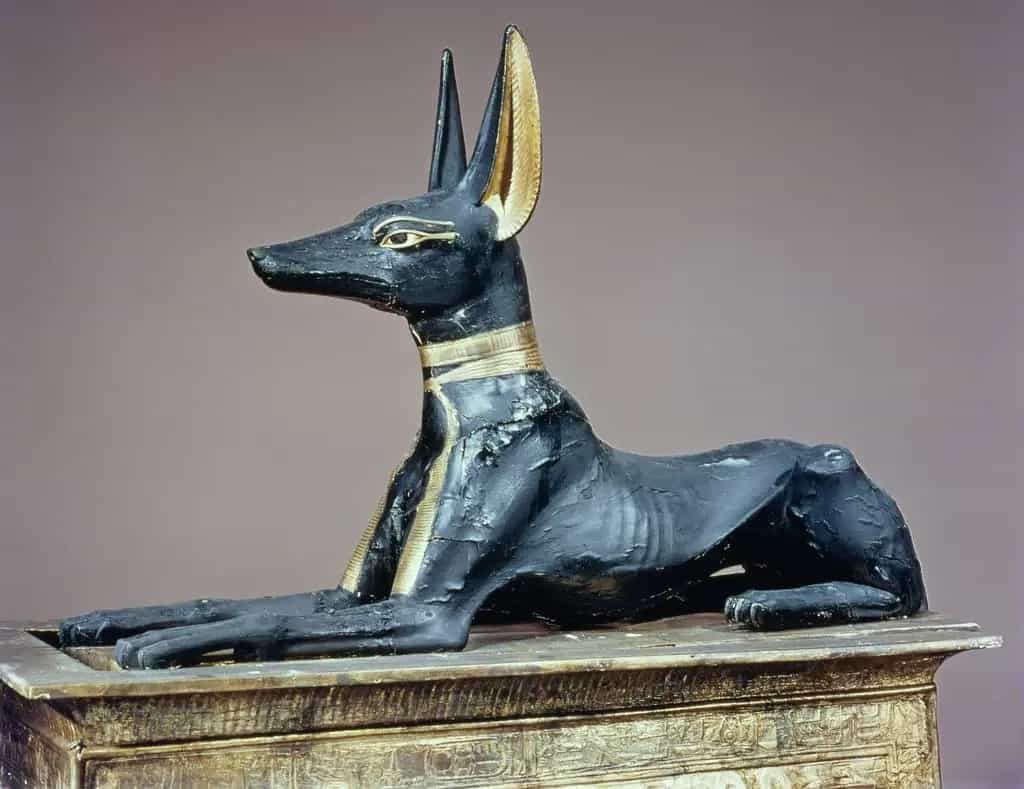
Proof of this is a small brick of coarse clay, the so-called magic brick, which is located at the entrance to the warehouse in front of the sanctuary. This is the fifth magic brick found in the tomb of Tutankhamun (usually four were placed, each in the cardinal directions).
